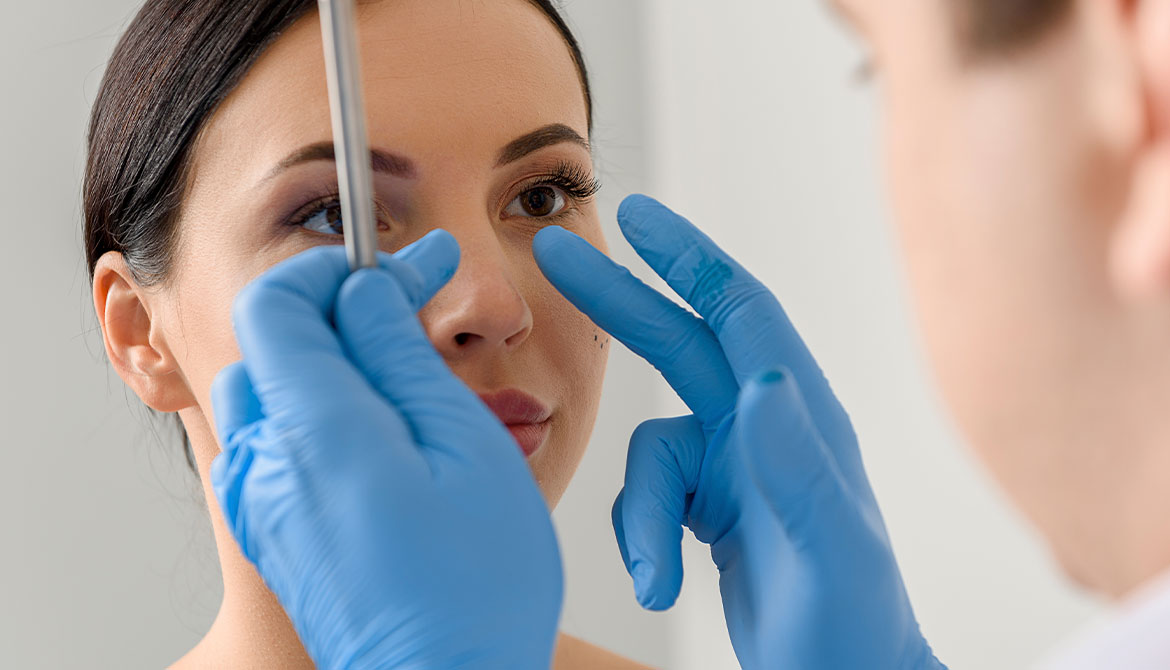What Is Chronic Rhinosinusitis?
Chronic rhinosinusitis is a condition characterized by long-term inflammation of the nose and sinuses. Unlike acute sinusitis, it lasts more than 12 weeks and is often associated with various underlying causes.
Chronic rhinosinusitis is not caused solely by infections; environmental factors, immune system responses, and nasal anatomy all play a role in its development. If left untreated, it may lead to persistent nasal congestion, headaches, and recurrent sinus infections, reducing quality of life.
Types of Chronic Rhinosinusitis
Chronic rhinosinusitis is classified into subgroups based on its underlying causes:
Chronic Rhinosinusitis Without Nasal Polyps
- The most common type of chronic sinusitis.
- It develops due to swelling of the nasal mucosa and irritation of the sinuses.
- Allergies, environmental irritants (smoke, chemicals), and infections may trigger this condition.
Chronic Rhinosinusitis With Nasal Polyps
- Abnormal growths (nasal polyps) develop in the sinuses, leading to blockage.
- Most noticeable symptoms include nasal congestion and loss of smell.
- Treatment includes medication to shrink polyps and surgery when necessary.
Allergic Fungal Rhinosinusitis
- Some individuals develop a strong allergic response to fungal spores inside the sinuses.
- Thick mucus accumulates in the sinuses.
- Diagnosis is confirmed by detecting fungi in samples taken from the sinuses.
Symptoms of Chronic Rhinosinusitis
Chronic rhinosinusitis causes long-lasting symptoms that negatively affect the patient’s quality of life. Common symptoms include:
- Persistent nasal congestion
- Yellow-green nasal discharge or postnasal drip
- Headache and facial pressure (especially around the eyes and forehead)
- Reduced sense of smell and taste
- Recurrent sinus infections
- Cough and throat discomfort
- Snoring and poor sleep quality
Causes of Chronic Rhinosinusitis
Several factors may contribute to the development of chronic rhinosinusitis:
- Allergies: Common allergens such as dust mites, pet dander, pollen, mold, and cockroach allergens can cause chronic nasal irritation.
- Environmental Irritants: Smoke, air pollution, chemicals, and toxins may trigger inflammation in the sinuses.
- Immune System Problems: Individuals with weak immune systems are more prone to recurrent sinus infections.
- Viral Infections: Chronic sinusitis may develop in some patients after repeated colds and flu.
- Deviated Nasal Septum: A deviated septum can block airflow and cause mucus buildup, contributing to sinusitis.
How Is Chronic Rhinosinusitis Diagnosed?
Diagnosis involves physical examination and imaging techniques:
- Nasal Endoscopy: A thin camera is inserted into the nose to visualize the sinuses.
- CT Scan: Used to assess sinus blockages, mucus accumulation, and the presence of polyps.
- Allergy Testing: Determines if chronic sinusitis is allergy-related.
Treatment Options for Chronic Rhinosinusitis
Treatment depends on the underlying causes of the condition.
Medical (Pharmaceutical) Treatment
Nasal Corticosteroid Sprays:
- Reduce inflammation and relieve nasal congestion.
- Long-term use can help control symptoms.
Saline Sprays and Nasal Irrigation:
- Cleanses the nasal passages and helps clear mucus.
- Daily use is recommended for sinus health.
Antibiotics:
- Prescribed if the sinusitis is caused by bacterial infection.
- Unnecessary or prolonged use is discouraged.
Antihistamines and Leukotriene Receptor Antagonists:
- Used in allergic sinusitis cases.
Biologic Medications (Next-Generation Treatments)
- Biologics such as dupilumab, mepolizumab, and omalizumab are used for chronic rhinosinusitis with nasal polyps.
- They suppress the immune system’s excessive inflammatory response and help reduce polyps.
Surgical Treatment
If medications are not effective, Endoscopic Sinus Surgery (ESS) may be recommended:
- Inflamed tissue or polyps that block the sinuses are removed.
- Sinus drainage pathways are reopened to restore airflow.
- Most patients experience relief after surgery, although recurrence is possible.
Prevention of Chronic Rhinosinusitis
- Avoid allergens (reduce exposure to dust, smoke, mold, etc.).
- Practice regular nasal hygiene (daily saline irrigation is recommended).
- Stay away from smoking and chemical irritants.
- Adopt a healthy lifestyle to support your immune system.
Conclusion
Chronic rhinosinusitis is a persistent condition that presents with symptoms such as nasal congestion, headaches, and loss of smell. Early diagnosis and proper treatment can help manage the symptoms and improve patients’ quality of life.
If you suffer from chronic nasal congestion, recurrent sinus infections, or loss of smell, it is important to consult an ENT specialist for a comprehensive evaluation.
Prof. Dr. Elif Aksoy
ENT Specialist – Swallowing and Voice Disorders


